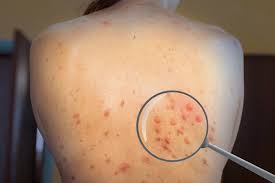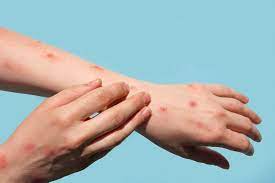Monkeypox virus: Causes, Transmission, Symptoms, Diagnosis and Treatment
Treatment of Monkeypox Virus. Monkeypox, simian pox, simian orthopoxvirosis or monkeypox virus infection, is a zoonosis caused by a virus of the Poxviridae family. This virus belongs to the same genus Orthopoxvirus as human smallpox, a disease that has been declared eradicated by the WHO since 1980.
It is endemic mainly in the forests of central tropical Africa. The virus, enzootic in the rainforests of central and western Africa, can be transmitted to humans and cause a syndrome with clinical manifestations similar to those of smallpox (pustular rash, fever, respiratory symptoms…), but less severe.
Transmission: Treatment of Monkeypox Virus
Human cases normally occur sporadically or in isolation, and human-to-human transmission is considered rare, but recent epidemiological data suggest that it is actually higher. In the 1996-1997 epidemic in the Democratic Republic of the Congo, 28% of people in direct contact with a patient during the incubation period were affected. And in 2003, up to six « generations of human-to-human transmission » were described in the Congo, but these transmission chains are usually short by one to three generations. Animal-to-human transmission is also a major concern.
Animal-to-human transmission occurs through direct contact with an animal lesion, respiratory secretions, or indirect contact (contaminated bedding) ; in Africa, through the capture, butchering, preparation, and consumption of game (contaminated wild forest animals).
Person-to-person transmission is possible through: Treatment of Monkeypox Virus
- unprotected direct physical contact with injured skin or biological fluids: acts of care, intimate contact… According to a study conducted in 16 countries in April-June 2022, and published in July 2022, 95% of these recent cases of contamination result from sexual contact.
- indirect contact (sharing toiletries, contact with clothing, bedding); transmission through contaminated food is not excluded ;
- by airborne transmission (respiratory droplets) at short distance, but prolonged face-to-face unprotected. For example neighbors in transportation, office, classroom, sports, dance9,46 … as well as large outdoor gatherings lasting several hours47.
- Human-to-animal transmission has not been reported (as of 2020)33. In August 2022, one case of human-to-dog transmission was reported in Paris, raising concerns about transmission of the disease, particularly by rodents.
In the current state of knowledge (2019-2022), most experts believe that human epidemics of monkeypox cannot develop in the absence of viral reintroduction from a nearby animal source . However, human-to-human transmission should not be underestimated, requiring increased international surveillance with early case detection
Symptoms and evolution of the disease: Treatment of Monkeypox Virus
Symptoms
The frequent symptoms of the disease are as follows:
- acute skin rash or isolated lesion (vesicles then pustules and finally crusts, as in smallpox);
- headache;
- sudden onset of fever (> 38.5°C);
- lymphadenopathy (swollen lymph nodes);
- myalgia (muscle and body aches);
- back pain;
- asthenia (severe weakness);
- proctitis (inflammation of the mucous membrane of the rectum);
- balanitis (inflammation of the glans penis).
Prevention and treatment: Treatment of Monkeypox Virus
Vaccination
The first and second generation smallpox vaccines provide effective protection. They were administered as part of the smallpox eradication program conducted in Switzerland until 1972.
A third-generation vaccine (MVA-BN/Imvanex®) has been licensed in Europe and the United States to immunize adults. It also offers good protection against monkeypox, but is not currently licensed in Switzerland. The acquisition of this product, developed by the company Bavarian Nordic, is underway in collaboration with the Army Pharmacy.
Treatment: Treatment of Monkeypox Virus
Treatment is mainly symptomatic. In severe cases, antiviral therapy with the drug tecovirimat can be administered following specialist advice. For more information just contact Afrique Santé Bio.
Read also : https://e.africbio.com/produit/varicocele-treating-natural-remedy-varicocele/


Commentaires récents